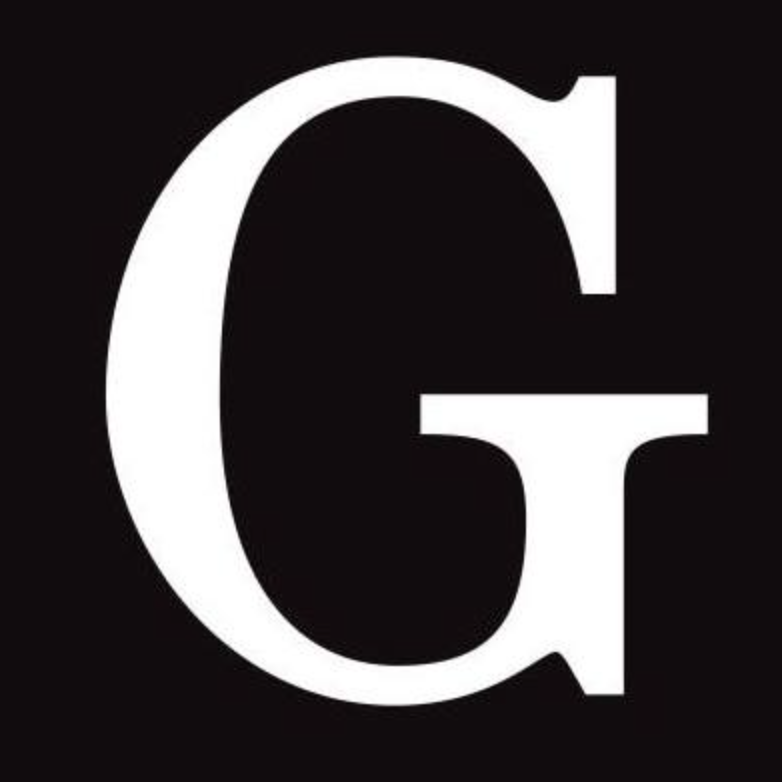Robby Krieger talks Magnatones, Maestros and Morrison
Doors guitarist lights our fire
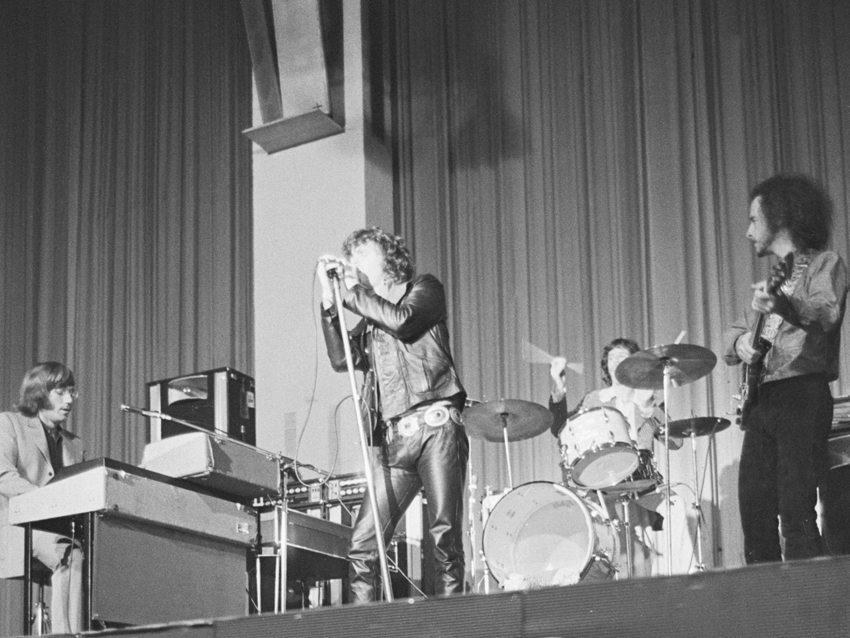
Robby Krieger talks Magnatones, Maestros and Morrison
As the SG-wielding guitarist in The Doors, Robby Krieger helped elevate Jim Morrison’s visionary lyrics to astral heights, as the band became one of the most darkly incandescent creative forces rock has ever seen. We talk to Robby about lighting the fire with Magnatones, Maestros – and plenty of good ol’ fashioned blues...
Rock Around The Block
“I had a friend up the street who had a guitar when I was 10 or 12. It was an acoustic and the first time I tried it I really liked it. I’d played the piano and trumpet, but those things didn’t really have much fascination for me, but the guitar did. It wasn’t until later, in junior high, that I heard the blues guys, who really I’d been missing out on.
“Blues licks are made for a guitar, so it’s something that you do naturally. I had started more with flamenco and folk music, but when I first heard blues it blew me away: like Blind Lemon Jefferson, Willie Johnson and Robert Johnson. A friend of mine had some of those records and that really tripped me out.”
Joining The Doors
“Moonlight Drive was the first song we played together. Before that, Jim had come over to my
house to meet me – John brought him over, John Densmore and I were buddies from high school. I’d just got a new guitar and I was fooling around with slide – you know, bottleneck – and Jim really liked that. He thought it would go good on Moonlight Drive.
“So the next week we got together with Ray [Manzarek] over at this little place. His friend Hank had a house in the middle of a parking lot in Santa Monica, crazy little house, and that’s where the rehearsal was. We cranked up Moonlight Drive and it was really magical, it just seemed to work, you know.”
Lighting The Fire
“I was the last one to join the band so they already had three or four songs that were in some form, and so we worked those out together with the guitar.
“One day Jim says, ‘Hey, you know what we don’t have enough originals, why don’t you guys try to write some?’ So we said, ‘Okay.’ I went home and the first one I wrote was Light My Fire. I brought it to the guys and I showed them the chords and we worked it out. After that I wrote Love Me Two Times and different songs, I brought them in and we’d arrange it together.”
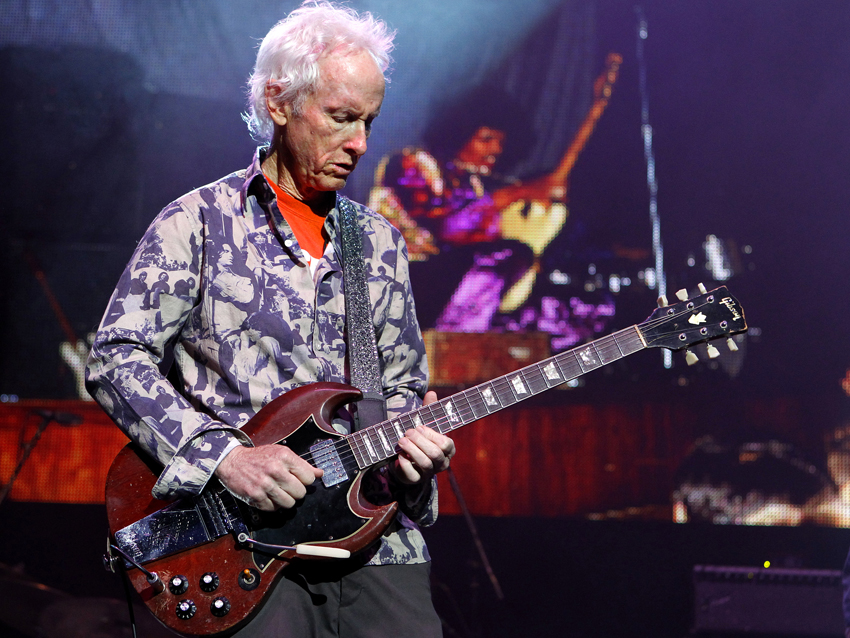
The End
Special Delivery
“The SG Special with P-90s that I started out with was basically the cheapest one in the store. It was from a place called Ace Loans in Santa Monica, which became a pretty well-known place for guitars. But at that point it was just a hockshop.
"I knew that they had some guitars in there and pretty good prices. I think it was $190 or something for that SG. Then that got stolen, unfortunately, and I figured I’d try the one with the humbuckers. But I liked them both.”
Beginning Of The End
“We played a place called the London Fog and that was our first residency-type gig. We really used that place to get our live show together. Even though there normally were not very many people there, at least there were some. By the time we got to playing at [celebrated LA club] the Whisky A Go Go we had a pretty good show down.
“The Whisky was just a really cool gig because that was the place to play in LA. All the big groups would come in there and we would be the house band for them. A lot of the record company people would come to the Whisky also, so we got seen by a lot of people that summer.
“So it was as much of a surprise to Ray and John and I, as it was to the audience [when Jim Morrison sang the climactic lyrics to The End for the first time, resulting in the band’s dismissal from the club] because Jim had never put that part in there up until then. So, we were blown away, too.
“Jim had been missing from the first set and we couldn’t find him. So Ray and John went down to the place where he was staying at the Tropicana Motel. He was in the room there – he’d taken too much acid and he was hiding under the bed.
"So they dragged him out, threw him in the shower, like: ‘Come on, man. You’ve got to get up and play.’ So he comes up for the next set and said, ‘I just want to do The End.’ That was the first song of the set, I believe, and yes, it was a watershed moment.”
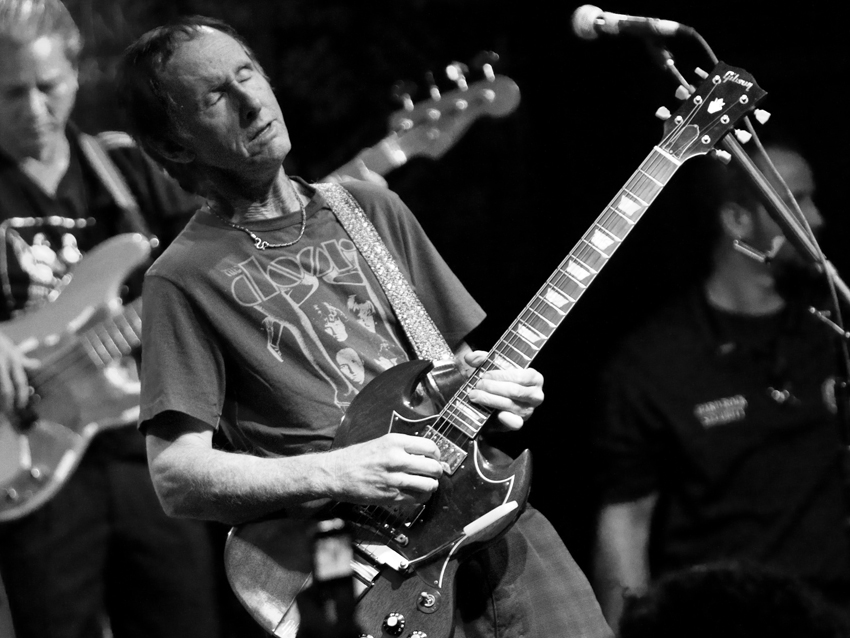
Amps, pedals and effects
Terrific Twins
“The first amp that I had was a Magnatone – it was a great little amp. I had a 212 that was like a Fender Twin Reverb, but that gave out after a while. We had a deal with Fender because Ray used the Fender Rhodes piano so we got some Twin Reverbs. Those were the ones I always used in the studio, pretty much all the time.
“I pretty much turned them up to 10, a lot of treble, maybe a bass on three, midrange half way, kind of like that. You know, nothing fancy, but I always liked the sound of the Fender Twin Reverb for studio – it seemed like the right size. You could get enough distortion out of it to where you wouldn’t have to use a lot of pedals.
“Live, we ended up using a company called Acoustic [Control Corporation] because we needed the big amps and they were big. They didn’t sound that great for a guitar, but they were good for a keyboard.”
Music, Maestro
“I used a Gibson Maestro fuzztone on Hello, I Love You, which I wasn’t crazy about, but it was all that we had. To tell you the truth I think they overdid it with the fuzz on that song. I would have toned it down a little bit but that was a mix thing.
“I think sometimes effects are an easy way to cover up mistakes and not hear what you’re really playing. I try to keep it down to just what’s necessary. This box that I use now is from the 90s – it’s an analogue Boss pedal called an ME-10 and even that has too much stuff on it.”
Mack On Track
“On Roadhouse Blues, it just had that one lick you know: ‘Don da da da da...’ There was a guy named Lonnie Mack, who was a great guitar player. He had just quit playing music, about a couple of years before and he was selling bibles out of the back of his car.
“One of the guys who worked with us happened to run into him and said, ‘Hey Lonnie, why don’t you come and work over at Elektra Records?’ So, he did and he was this handyman guy over at Elektra Records. He’d he had a big hit with Memphis years earlier. But he’d got sick of the music business, I guess.
“He happened to have a bass and so, we said, ‘Hey Lonnie can you play bass on this blues?’ and he said, ‘Yeah, sure,’ and I think that was the whole key to this song, because he just played this amazing bassline and it just fitted perfectly with what we were doing. Then, luckily, John Sebastian [founder of The Lovin’ Spoonful – Ed] was in town and he came and played harmonica. It was a really fun song to record and I think that comes through in the music.”
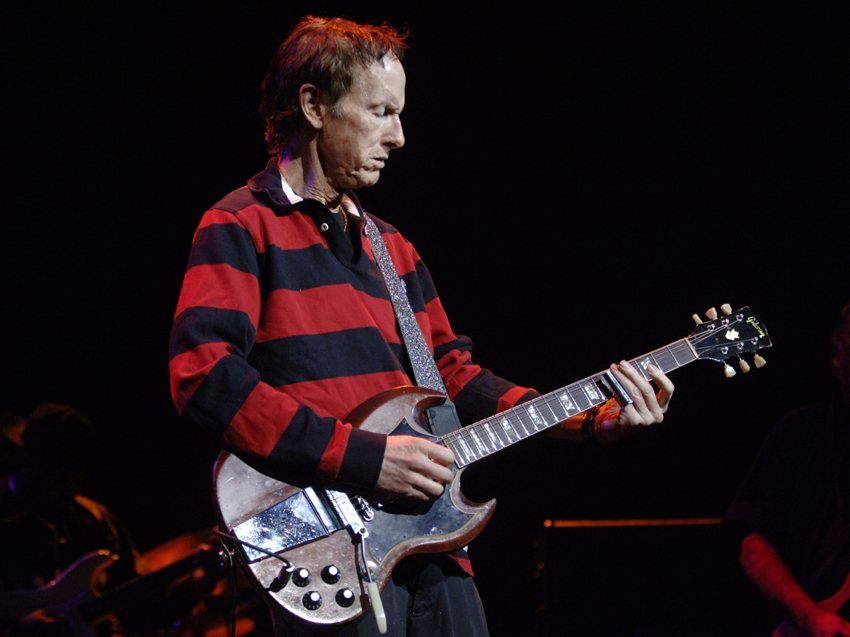
LA Woman and Love Me Two Times
LA Woman
“LA Woman would have been the future, had Jim not died, because of the way it just organically happened” so [producer] Bruce Botnick could see us. We’d been rehearsing in there anyway, so we knew the sound pretty much.
"There was some leakage but I think that’s what made it sound live – and it was live. I’m pretty sure LA Woman was totally live, no overdubs. I think people over-produce stuff nowadays and it just loses some of the vitality.”
Love Me Two Times
“I play my SG all the time – it’s my main guitar. But it’s not the one I got in ’67: unfortunately that one got stolen, too. But I managed to find one that was just like it in a music shop and I’ve had it for maybe 20 years. It’s pretty hard to beat.
“Gibson has made a copy of the original, which came out a couple of years ago and they did a pretty good job. In fact, the neck I like better than my original neck – I got the shape from a friend’s Les Paul Junior. The pickups don’t quite sound as good as my original one, but it’s pretty close.”
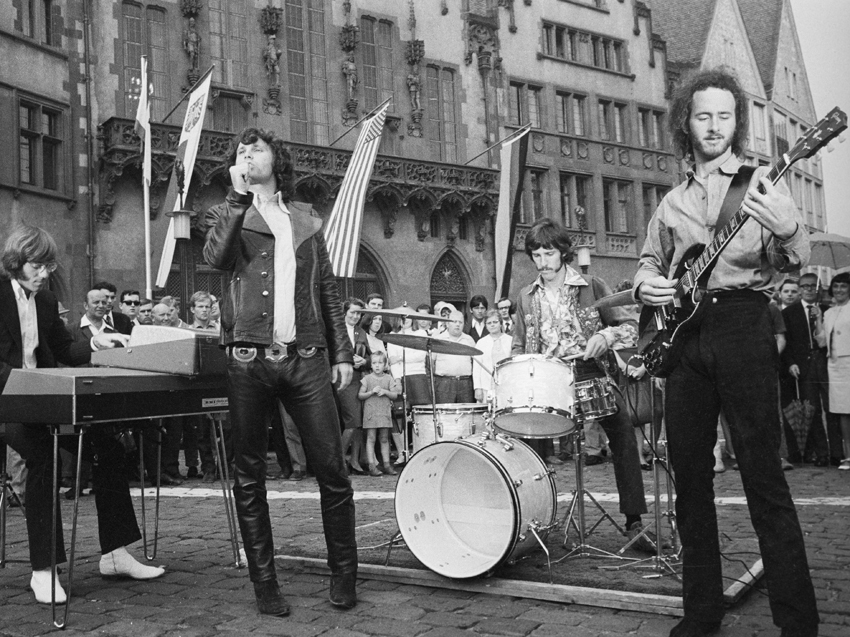
Grammys and Haight-Ashbury
Single Minded
“I’ve been playing with these guys, some from Frank Zappa’s old band. We had a record out called Singularity, which got a Grammy nomination – it’s mostly instrumental. One guy is [bassist] Arthur Barrow, he played in the Joe’s Garage era of Zappa, and Tommy Mars, a great Hammond player. We’re working on a new record, Robby Krieger And Jam Kitchen.”
Winterland Wonder
I always loved it when we used to go to San Francisco and play the Avalon, Winterland, those kinds of places. To me, that brought the whole 60s thing into focus. It was just cool to be up there at Haight-Ashbury with all the stuff that was going on up there at the time – it will probably never happen again.”
Guitarist is the longest established UK guitar magazine, offering gear reviews, artist interviews, techniques lessons and loads more, in print, on tablet and on smartphones
Digital: http://bit.ly/GuitaristiOS
If you love guitars, you'll love Guitarist. Find us in print, on Newsstand for iPad, iPhone and other digital readers
